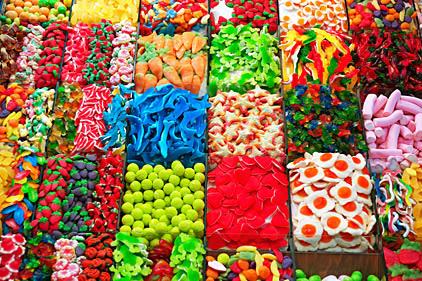
On a Friday afternoon before the start of Shabbat, the smell of freshly baked rugelach will lure even the most resilient shopper into its lively corridors. Shopkeepers bellowing out last minute deals and the sheer energy of a crowd collectively rushing, pushing, bargaining and tussling reverberate through busy alleyways. This is the classic picture of Jerusalem’s famous Machane Yehuda open-air market, otherwise known as the shuk.
Venture even deeper into its alleyways, however, and the strong smell of recently sacrificed fish, dank floors and the rank odor of sweat form the hardworking shop-owners, Arab and Jewish alike, will penetrate your senses.
Turn a bit to the left or right, and you might find couples relaxing over a gourmet cup of coffee in spite of the bustle or peek into the passageways on a summer evening to discover Jerusalemites dining in upscale restaurants as jazz music penetrates the night air.
These somewhat contradictory images all represent the enduring character and flavor of the shuk, a long time symbol of the Jerusalem’s modern character.
One shop owner described the shuk as “the soul of Jerusalem,” and many Jerusalemites can not imagine their city without it.
The shuk has its origins in what was then called the Beit Ya’acov neighborhood established by 10 Jewish families in 1877. To accommodate the settlers who couldn’t make the dangerous trip to the Old City market to buy goods, Arab villagers from the nearby town of Lifta would bring their merchandises to sell in the new Jewish neighborhood. Their provisional stands, set up on an empty field then owned by a wealthy Jewish banker, soon became permanent fixtures.
The market grew to accommodate both Arab and Jewish merchants and remained relatively stable until the British Mandate in 1922. The British, however, levied fines on the shop owners selling in the open field in an attempt to close down the market as they perceived it to be a horrible eye-sore in a sacred city. The desperate merchants turned to the Jewish committee at the time, which lent them money to build real shops instead of the makeshift tents that they had been using.
Thus was born the ragtag image of the shuk as a place to find the best bargain and the toughest bargainers. Yet in the 1950s and 1960s the shuk experienced a rapid decay as people were moving out of the local neighborhoods. In the past 20 years, however, there has been a small but concerted effort to revitalize the market place and today, the shuk is arguably undergoing a small renaissance as seen through opening of least three new coffee shops, a wine specialty store and as many new restaurants within the past three years.
Today, however, Jerusalem can boast of modern day supermarket chains offering the lowest prices and aisle after aisle of luxury products. Why would Jerusalemites still bring their business to the shuk?
A closer look into the shuk’s dense character reveals that amidst its hustle and bustle is a personal touch, a genuine and authentic flavor that can’t be gleaned from today’s mass produced supermarkets.
David Bueh, a ninth-generation Jerusalemite owns a small food shop, founded in 1919 by his grandfather in the shuk’s main thoroughfare. From his store he can see the apartment in which he was born—across the street, to the left and three-flights up. His shop is the oldest existing original shop from the shuk’s earliest days and he recently opened a restaurant offering classic Middle Eastern food.
To be authentic, however, does not mean to be provincial. Bueh studies technology at the local university, and one gleans from his avid conversation about the politics and economics of the day that it is precisely his deep knowledge and understanding of the market’s place in Jerusalem culture that gives his shop a true personality.
Case in point: brothers Isaac and Ami Samnes left professions in hi-tech to open up a specialty wine shop in the market place.
“People come to the shuk because of the relationship they have with people, for the atmosphere, chemistry and freshness of the product,” Ami explained.
Where else can you find men like Yossi Mizrachi who runs a cheese shop with the freshest Bulgarian, Hemed Tzfat and Goat cheese available? (He’ll let you taste them all before making a purchase!)
Indeed the shuk is one of the last places that draws in every type of Jerusalemite. The poorest customers still come in before Shabbat to get last minute deals as producers slash their prices, and it is not uncommon to see the political elite, from the Prime Minister to members of the Knesset strolling through the corridors.
It does not matter whether people are coming to the shuk to buy gourmet chocolate or find the best deal on a fresh vegetable, the shuk exudes the raw flavor and character of the inner Jerusalemite.
“For someone who is born in Jerusalem, it is a dream to have a shop in the shuk,” said one passerby.
And with the crowds, the tempo, smells and mythical allure—what a colorful dream it is!
The words of this author reflect his/her own opinions and do not necessarily represent the official position of the Orthodox Union.
